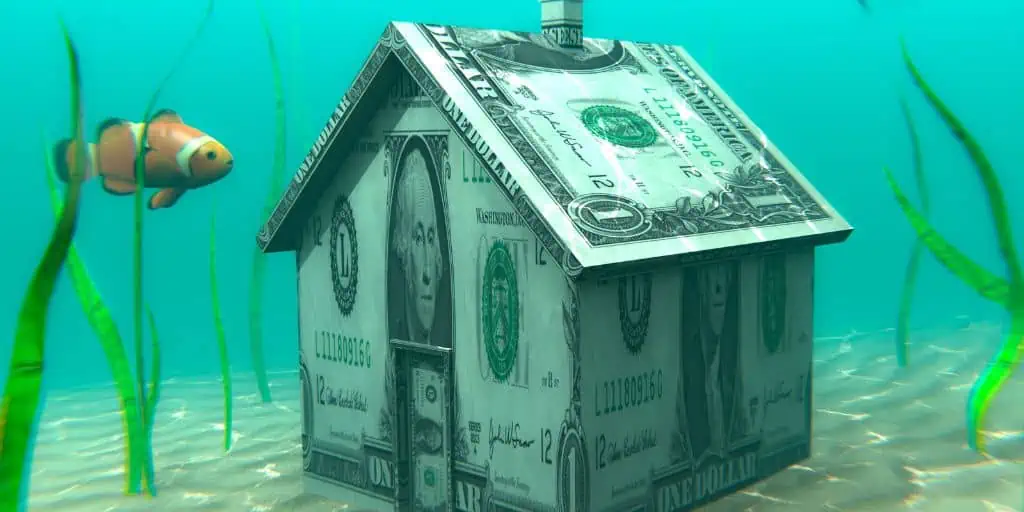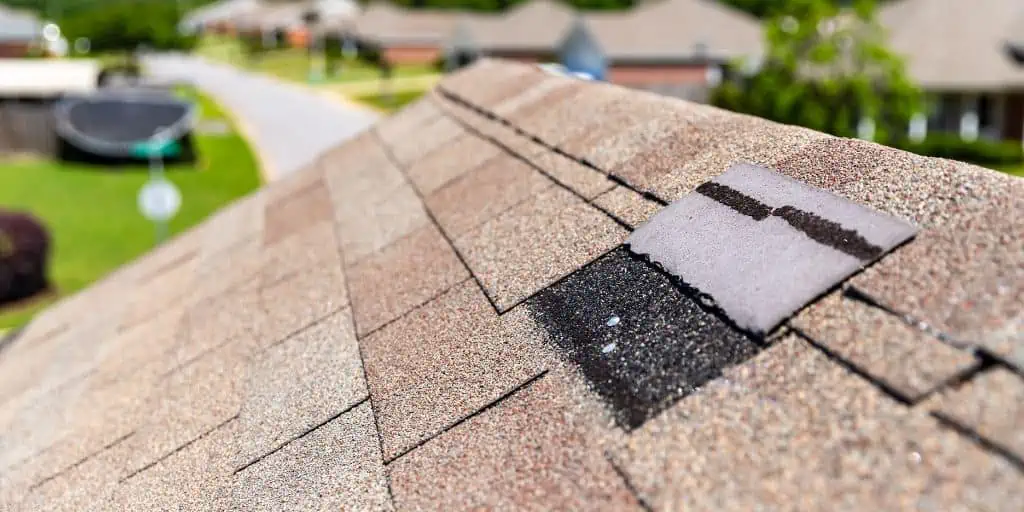What Is Negative Equity?
REtipster does not provide tax, investment, or financial advice. Always seek the help of a licensed financial professional before taking action.
What Does Negative Equity Mean?
Negative equity occurs when the current market value of an asset (in this context, usually real property or a vehicle) is lower than the remaining principal balance of the loan.
In other words, the borrower owes more on the property than what it is currently worth[1].
For instance, owing $120,000 on a property valued at $90,000 means the borrower has negative equity of $30,000. This is a classic example of an upside-down mortgage and the most basic illustration of how negative equity works.
What Causes Negative Equity?
Property owners eventually end up in a positive equity position most of the time. However, loans can sink underwater when the market value dips below the outstanding balance.
Here are a few reasons why this happens:
- Supply and demand. Properties can depreciate when their supply outpaces the demand for them. The cooling down of local real estate markets results in the decline of house prices[2]. With vehicles, an owner might immediately find themselves in a negative equity situation. Cars lose value after the initial purchase when they are no longer brand new, then continue to depreciate over time as they become more prone to mechanical problems as they age.
- Significant market fluctuation. Real estate prices move up and down, reflecting the ever-changing sentiments of consumers toward them. In extreme cases where commodities become overvalued, a “market bubble”[3] can form. When a bubble pops, the market prices of overvalued financed assets can drop while the loan balance remains the same, resulting in negative home equity.
- Poor maintenance. Much of the market value of houses is tied to their condition. Regular upkeep is vital to keep them from going down in value.
- Small down payment. Down payments directly translate to positive equity. The smaller the down payment, the less effective they are as financial cushions when the underlying assets lose their value. The larger the payment against the mortgage balance, the more likely it is to reverse negative equity.
- Loan delinquency. Like the down payment, regular mortgage payments can help build equity on a property. Unless the loan is interest-only[4], a portion of the monthly payment goes toward the loan principal. Therefore, missing a payment slows the reduction of what is owed and increases the chances of negative equity.
- Low appraisal. Appraisals dictate the amount of credit lenders are willing to extend. The borrower needs to take care of the difference, paying more money or receiving a worse loan term when the lender acts on a low appraisal for the asset. As a result, the borrower goes into the purchase with negative equity.
The Disadvantages of Negative Equity
Being in a negative equity position is disadvantageous. Nobody likes to sell at a loss, so it naturally limits options when making financial decisions.
Consider positive home equity, which allows the homeowner to borrow against the property. By taking out a cash-out refinance, a home equity loan, or a home equity line of credit[5], the homeowner can turn the house into a source of cash, depending only on how much equity they have built on the property.
Homeowners have quite a few options for how the proceeds from a home equity loan or line of credit can be used, such as consolidating debt, financing value-increasing home projects, or beefing up an investment portfolio. Spent wisely, cashed-out equity can be an excellent wealth builder for a property owner.
However, home equity is not always convertible to cash at a 1:1 ratio. This means a buffer against property depreciation is essential.
As a result, people with underwater mortgages do not have the luxury of accessing cash by tapping home equity. Moreover, negative home equity prevents a borrower from refinancing a mortgage, missing out on the opportunity to save money over the long term[6].
In some cases, delinquent mortgage borrowers facing foreclosure may be forced to do a short sale[7]. This distressed transaction can lead to home loss, a credit score deduction, and even negative net worth[8]. Since the seller gets no cash out of the deal, a short sale is a triple whammy.
Can Negative Equity Be a Good Thing?
Considering the drawbacks that come with it, anyone should avoid negative equity at any cost.
However, when people understand negative equity, they realize that positive equity is key to building wealth.
Many factors contributing to negative equity are beyond the control of mortgage and car loan borrowers, such as interest rates and a home’s current market, among other variables. However, being underwater can be avoided by not falling into a position where a person’s liabilities exceed their assets, at least not by a significant margin.
Learning the lessons of negative equity can make one more financially disciplined and prudent, especially when assessing property values before taking out a new loan.
Takeaways
- Negative equity is a situation where a borrower owes more on the property (like a house or a car) than what it is currently worth.
- Putting down a small amount, decreasing demand for a property, and missing loan payments are some of the things that can put a borrower in a negative equity position.
- The only upside of negative equity is teaching people that being judicious when taking out loans is key to achieving financial freedom.
Sources
- Dehan, A. (2021.) Negative Equity: Everything You Need To Know. Quicken Loans. Retrieved from https://www.quickenloans.com/learn/negative-equity
- Roper, M. (2022.) Housing market shows signs of cooling down. WMAR 2 News. Retrieved from https://www.wmar2news.com/news/local-news/housing-market-shows-signs-of-cooling-down
- Fox, J. (2014.) What’s That You’re Calling a Bubble? Harvard Business Review. Retrieved from https://hbr.org/2014/01/whats-that-youre-calling-a-bubble
- Chase. (2021.) What is an interest-only mortgage? Retrieved from https://www.chase.com/personal/mortgage/education/financing-a-home/what-is-interest-only-mortgage
- DeMatteo, M. (2020.) The pros and cons of refinancing your home. CNBC. Retrieved from https://www.cnbc.com/select/pros-and-cons-of-refinancing-home/
- Miller, D. (2022.) How to get equity out of your house. Bankrate. Retrieved from https://www.bankrate.com/home-equity/how-much-equity-can-you-cash-out-of-home/
- Loftsgordon, A. (2022.) Your Options to Avoid Foreclosure. Nolo. Retrieved from https://www.nolo.com/legal-encyclopedia/options-to-avoid-foreclosure.html
- Equifax. (2020.) How a Short Sale or Foreclosure May Affect Your Credit Scores. Retrieved from https://www.equifax.com/personal/education/loans/how-short-sale-foreclosure-affects-credit-scores/








